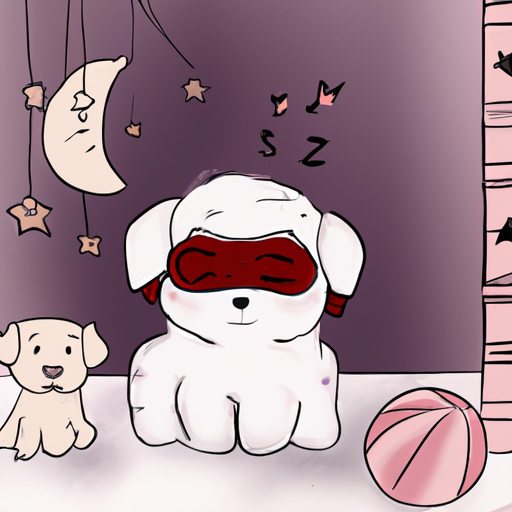As a passionate pet enthusiast, I understand the joy that a new puppy brings into your life. But along with this joy, comes the responsibility of ensuring your furry friend is comfortable, especially during the night. If you’re struggling with a restless pup, you’re not alone. Let’s dive into some effective strategies on how to soothe a puppy at night.
1. Establish a Regular Bedtime Routine
Just like humans, puppies also thrive on routines. A consistent schedule can help your pup understand when it’s time to sleep.
- Meal Times: Feed your puppy at the same time each day. This helps regulate their digestive system and can signal that bedtime is approaching.
- Play Time: Ensure your pup gets plenty of exercise during the day to tire them out. However, avoid vigorous play close to bedtime as this can overstimulate them.
- Bedtime Rituals: These might include a final bathroom break, a calm play session, or a bedtime story. Yes, reading to your puppy can be incredibly soothing!
2. Create a Comfortable Sleep Environment
Your puppy’s sleep environment plays a significant role in how well they sleep. Here are a few tips:
- Bedding: Choose a comfortable bed that is right for your puppy’s size. Some pups prefer beds with raised sides, while others might like flat ones.
- Location: The bed should be in a quiet, dark, and cool place. If possible, place it near your bedroom so your pup can still sense your presence.
- Noise: Some puppies sleep better with white noise. Consider a fan, humidifier, or a white noise machine.
3. Use Positive Reinforcement
Positive reinforcement is a powerful tool when getting your puppy to enjoy bedtime. Instead of punishing them for unwanted behavior, reward them for good behavior.
- Rewards: This could be a small treat, a favorite toy, or praise.
- Consistency: Always reward immediately after the desired behavior to reinforce the connection.
- Patience: Remember, training takes time. Be patient and consistent.
4. Address Potential Health Problems
Sometimes, a puppy’s restlessness might be due to a health issue. It’s important to rule out these possibilities.
| Potential Problem | Symptoms | What to Do |
|---|---|---|
| Parasites | Scratching, diarrhea, visible worms | Consult a vet |
| Urinary Tract Infections | Frequent urination, crying during urination | Consult a vet |
| Teething | Chewing, drooling, refusal to eat | Use teething toys, consult a vet if severe |
5. Consult a Professional
If you’ve tried everything and your puppy still struggles at night, it may be time to consult a professional. A dog trainer or a vet can provide advice tailored specifically to your pup.
Frequently Asked Questions
1. How long do puppies usually sleep at night?
Puppies typically sleep around 5-6 hours at night, but this can vary depending on the breed and age.
2. My puppy cries at night. What should I do?
Firstly, ensure their basic needs are met: they’re not hungry, thirsty, or in need of a bathroom break. If they continue to cry, it might be a sign of separation anxiety. In this case, try leaving a comforting item in their bed, like a piece of your clothing.
3. Should I let my puppy sleep in my bed?
This depends on your personal preference. Some people find it creates a stronger bond, while others worry it can lead to behavioral issues. It’s a decision that should be made with your puppy’s best interests in mind.
Remember, soothing a puppy at night requires patience and consistency. But with these strategies, you’re well on your way to helping your puppy (and yourself) get a good night’s sleep.



